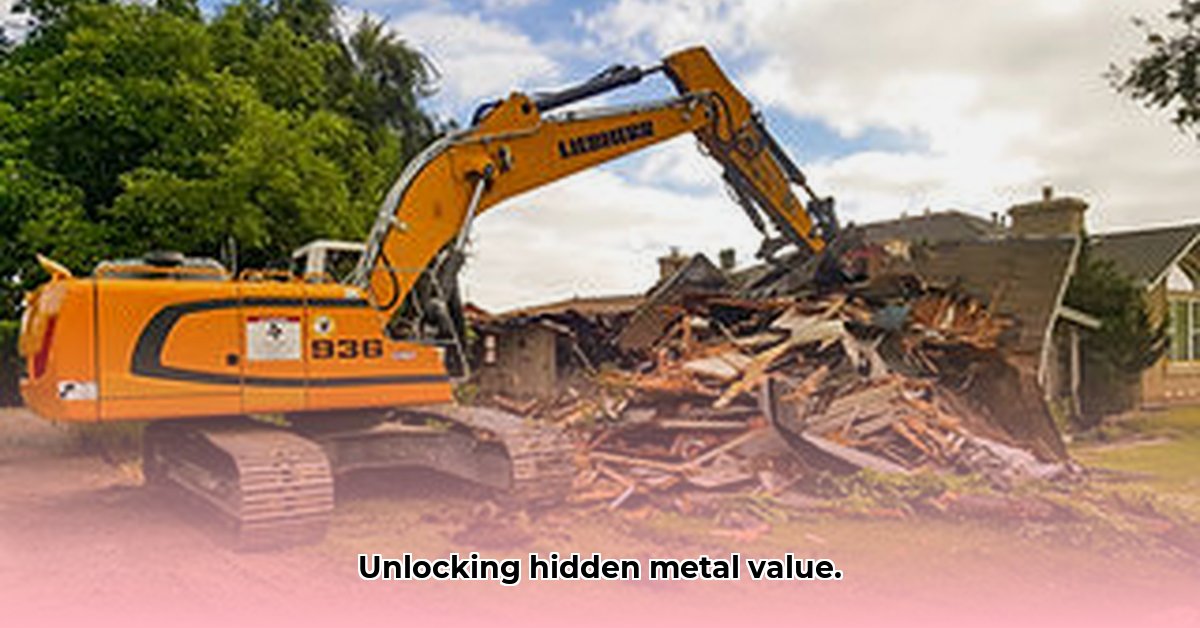
Delta Scrap & Salvage: Navigating the California Metal Recycling Market
Delta Scrap & Salvage has served Oakley, California, for over 45 years, establishing itself as a key player in the local metal recycling industry. However, the scrap metal market's inherent volatility presents ongoing challenges. This analysis explores Delta's strengths, weaknesses, and opportunities for sustained success, offering actionable intelligence for the company, its customers, and industry regulators.
Doesn't the fluctuating nature of scrap metal prices pose a significant challenge to profitability for businesses like Delta Scrap & Salvage? The reality is that Delta, along with other recyclers, faces considerable pressure from unpredictable market dynamics.
Understanding Market Volatility
The scrap metal market is highly susceptible to global economic shifts, geopolitical events, and even weather patterns. Price fluctuations are frequent and substantial, requiring adaptability and strategic planning from recyclers. This volatility makes consistent profitability a significant challenge. Experts agree that diversification of services is crucial for mitigating these risks. Research into predictive market modeling is ongoing, but a precise forecasting tool remains elusive.
Delta's Strengths and Areas for Improvement
Delta's longevity demonstrates its operational resilience. Its expansion into demolition and investment recovery represents a strategic diversification away from solely relying on fluctuating scrap metal prices. However, areas for improvement exist. Specifically, enhancing pricing transparency would significantly bolster customer confidence.
How can improved transparency build stronger customer relationships? Currently, Delta provides online price estimates that lack guaranteed accuracy, leading to customer uncertainty. Implementing a clear, regularly updated pricing system reflecting current market values would foster trust and attract new clients.
Safety and Environmental Responsibility
Delta emphasizes safety, a crucial aspect for any recycling operation. However, publicly showcasing safety certifications and procedures — both online and on-site — would further enhance customer confidence and attract environmentally conscious clients. This proactive approach demonstrates a commitment to responsible operations.
Recommendations for Delta Scrap & Salvage
To ensure long-term success, Delta should implement the following short-term and long-term strategies:
Short-Term Actions (Within 1 Year):
- Implement Dynamic Pricing: Create a transparent online pricing system updated daily to reflect market fluctuations. This will build customer trust and improve business efficiency.
- Promote Safety: Publicly display safety certifications and procedures on the website and within the facility.
- Invest in Employee Training: Provide specialized training for employees in investment recovery and demolition to ensure safe and efficient operations. Industry best practices should be adopted to maximize safety and regulatory compliance.
Long-Term Strategies (Within 3-5 Years):
- Develop a Formal Risk Management Plan: Implement a comprehensive plan to address the inherent risks of the scrap metal market, including financial forecasting and contingency planning.
- Cultivate Customer Relationships: Establish strong, long-term relationships with key clients through negotiated contracts to provide revenue stability.
- Invest in Technology: Utilize technology to improve efficiency and resource management across all operations. Investing in automation and data analytics can improve operational efficiency.
- Explore Strategic Partnerships: Collaborate with other recyclers to increase buying power and negotiate better scrap prices. Strategic alliances can offer significant competitive advantages.
- Diversify Material Streams: Explore opportunities to expand into new recycling areas, such as electronic waste (e-waste) recycling, to broaden revenue streams and reduce market dependency.
Customer and Regulatory Considerations
Customers can contribute to a more sustainable industry by:
- Prioritizing Transparency: Choosing recyclers with clear pricing and practices.
- Emphasizing Safety: Selecting businesses with demonstrably strong safety records.
- Comparing Services: Researching and comparing prices and services among various recyclers.
Regulators can reinforce responsible practices by:
- Monitoring Compliance: Ensuring adherence to environmental and safety regulations.
- Conducting Regular Inspections: Implementing routine inspections to ensure safe handling of materials.
- Modernizing Regulations: Updating and enforcing regulations that promote sustainable waste management.
By implementing these recommendations, Delta Scrap & Salvage can establish a robust foundation for sustained growth and profitability within the competitive California metal recycling market. Adaptability and a proactive approach are crucial for navigating the market's inherent volatility.